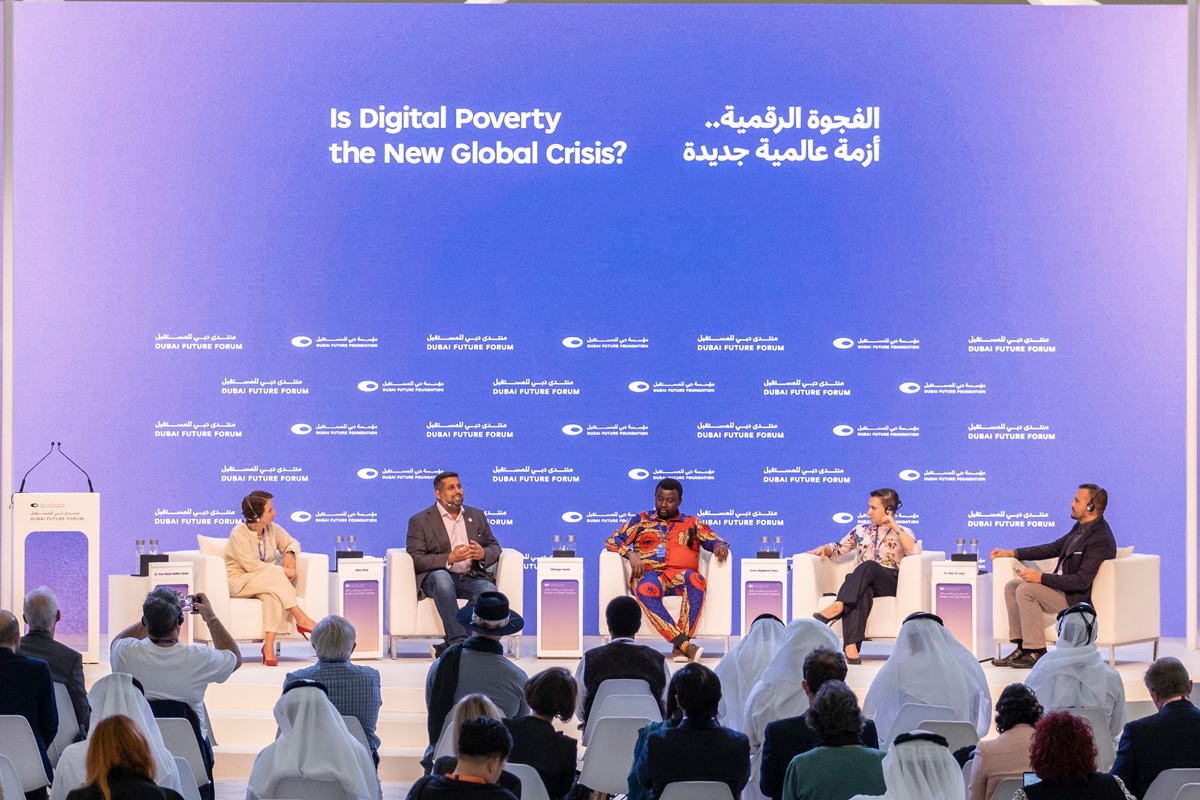People must recognize the vast difference between “equality and equity” to ensure everyone can participate in the digital economy and leave no one behind, Anca Bogdana Rusu, Head of Public Sector, cLabs, said at the Dubai Future Forum today.
Speaking on a panel titled ‘Is Digital Poverty the New Global Crisis?’, Rusu urged governments and global corporations to take steps now to address the divide. She was joined by Gbenga Sesan, Executive Director of Paradigm Initiative, who added: “There is a wide gap in access to data between generations and their digital literacy, entailing the poor usage of digital by the older generation.”
She called attention to the unprecedented disruption brought on by Covid 19, claiming that it had affected an entire generation of students, impacting their mental health, wellbeing, socialization, and chances for active participation in society, including the labor market.
Digital poverty is one of the most pressing challenges which has been aggravated by the Covid-19 pandemic. According to Dr Eva-Marie Muller-Stuler, Partner of EY’s Data & AI practice, said: “It is not about closing the gap regarding access to tech; it is about bridging the gap and enhancing the economy.”
Vilas Dhar, President of the Patrick J. McGovern Foundation, noted that technology promotes existing disparities by ignoring the perspectives of minorities and countries in the Global South. “I believe we focus on the wrong values; we should focus on how we can address systemic inequalities and transform the system of power.”
Another panel titled ‘Can We Depend on a Sustainable Energy Future?” drew the participation of four local and international speakers: Dr. Nisreen Lahham, Head of Boards of Trustees, Futures Studies Forum for Africa and the Middle East; Lourdes Vega, Director, Research and Innovation Center on CO2 and Hydrogen, Khalifa University; Geraldine Wessing, Chief Political Analyst, Shell; and Angeliki Kapoglou, who leads on Strategy and Innovation for the European Space Agency.
As the world races to create new energy sources, Lourdes Vega said a mindset “change” was needed to think about radical solutions for green energy technology and sustainability. “We must innovate,” she said. “But we must also not forget that innovation does not only include creating something new; we need to look at what already exists, enhance it, improve it and make it fit for the future.”
Angeliki Kapoglou, called on nations to double down on research and focus collective efforts on new technologies and investments in energy transition to ensure the world is prepared for one of the most seismic policy priorities.
The Dubai Future Forum, running from 11-12 October at Dubai’s Museum of the Future, is the world’s largest global gathering of futurists. It will host more than 400 international participants, including technology experts, scientists, innovators, and specialists.
It will host more than 70 speakers and 45 global institutions, such as the Organization for Economic Co-operation and Development, the Future Today Institute, the Data Trusts Initiative, the Future of Humanity, the Social Design Institute, the Middle East Institute, EY, Khalifa University, and the Regulations Lab.
Nations Must Bridge Digital Skills Gap to Boost Economy
